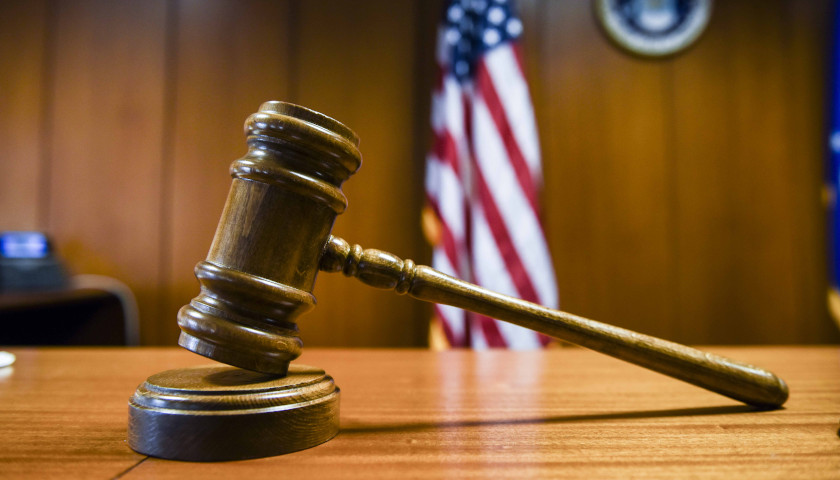Opening arguments are set to begin Monday in the trial of former Minneapolis Police officers Derek Chauvin, accused of killing George Floyd, after weeks of jury selection.
The jury selection process in the high-profile trail was marred with controversy after the city of Minneapolis awarded Floyd’s family $27 million to settle a civil lawsuit during the criminal proceedings.
 Despite making national news, which Chauvin’s attorney Eric Nelson argued could taint the jury pool, Hennepin County District Judge Peter Cahill denied Nelson’s motions to delay the trial, or move it outside of Hennepin County. Cahill ruled that media coverage of the case had saturated the entire state of Minnesota, and moving the trial to another county would not affect potential jurors’ abilities to remain impartial.
Despite making national news, which Chauvin’s attorney Eric Nelson argued could taint the jury pool, Hennepin County District Judge Peter Cahill denied Nelson’s motions to delay the trial, or move it outside of Hennepin County. Cahill ruled that media coverage of the case had saturated the entire state of Minnesota, and moving the trial to another county would not affect potential jurors’ abilities to remain impartial.
Cahill did reprimand members of the media for allegedly taking photos of the lawyers’ notepads, as well as leaking the security details of the courtroom during the jury selection process.
Most of that process focused on whether, despite the ongoing news coverage, jurors could remain impartial, as well as their attitudes towards police and the Black Lives Matter movement.
The jury of 15, which includes three alternate jurors, is described as “diverse.”
“The panel of 15 includes nine people who are white and six who are Black or multiracial, according to the court,” MPR reported. “If the court follows standard practice and the alternates are the last three chosen, the 12 who deliberate would be evenly split between whites and people of color.”
Associated Press did a deeper dive into each juror who was eventually selected. They are identified only by their jury numbers, as Cahill ordered their identities be protected until the end of the trial due to the high-profile nature of the trial.
- Juror number two was chosen. He is reportedly a white chemist in his mid-20s who “visited George Floyd Square because Floyd’s arrest was such a ‘transformative event for that area.'”
- Juror number nine was selected. She is described as a “multiracial woman in her 20s who has Type 1 diabetes,” and said she saw the now-infamous bystander video of Floyd’s arrest. She agreed that she viewed Chauvin in a “somewhat negative” manner.
- Juror number 19 was seated. He is described as a white man in his 30s who “supports Black Lives Matter as a general concept but disagrees with some of the ways group members go about things,” and has “an unfavorable opinion” on the Blue Lives Matter movement, seen by some a counter to the Black Lives Matter movement.
- Juror number 27 was selected. He is a black man and immigrant in his 30s who said he harbors a “somewhat negative” view of Chauvin.
- Juror number 44 was seated. She is a white, single mother of two in her mid-fifties who said she has seen a lot of coverage of Floyd’s arrest and death. She reportedly believes the media to be somewhat biased, but also “strongly agrees” that the justice system is biased against racial minorities.
- Juror number 52 was selected. He is described as a black man in his mid-30s who has “neutral opinions” on Chauvin and Floyd, but wonders why the the other police officers involved in the incident did not stop Chauvin from kneeling on Floyd.
- Juror number 55, a white, single mother of two was seated. She reportedly has a “somewhat unfavorable” opinion of Chauvin and has seen the bystander video multiple times.
- Juror number 79 was seated. He is a black immigrant in his 40s who has two children. He said he trusts police, and that citizens who interact with them should cooperate.
- Juror number 85, a multiracial woman in her 40s, was selected. She reportedly has a neutral view of Floyd and “has a pretty strong faith in police.”
- Juror number 89 was seated. She is a white woman in her 50s who is a COVID-19 nurse. Since expert medical testimony will be introduced (an autopsy said Floyd died of an overdose) in the trial, she promised not to make judgments based on her own experience in the medical field.
- Juror number 91 was seated. She is a black woman in her 60s who is a retired marketing professional. She said she has a “very favorable” view of Black Lives Matter, despite saying she was unfamiliar with the organization.
- Juror number 92 was also seated. She is described as a white woman in her 40s who works in the insurance business.
- Juror number 96 is a white woman in her 50s, who said she does not believe that police are more inclined to use force against black suspects versus white suspects. She also agreed that “a person should have nothing to fear from police if they cooperate and comply with commands.”
- Juror number 118, a white woman in her 20, was seated for the trial. She is described as a social worker who believes police reform is necessary, but also that police are important.
- Juror number 131 was the last juror seated. He is described as white man in his 20s who has a “somewhat negative” view of Chauvin and views Black Lives Matter “somewhat favorably.” He said that Floyd’s death sparked conversations about race relations at work, and believes that Chauvin restrained Floyd for an unnecessary period of time.
All of the jurors except Juror number two have seen the bystander video of Floyd’s arrest.
– – –
Pete D’Abrosca is a contributor at The Minnesota Sun and The Star News Network. Follow Pete on Twitter. Email tips to [email protected].




